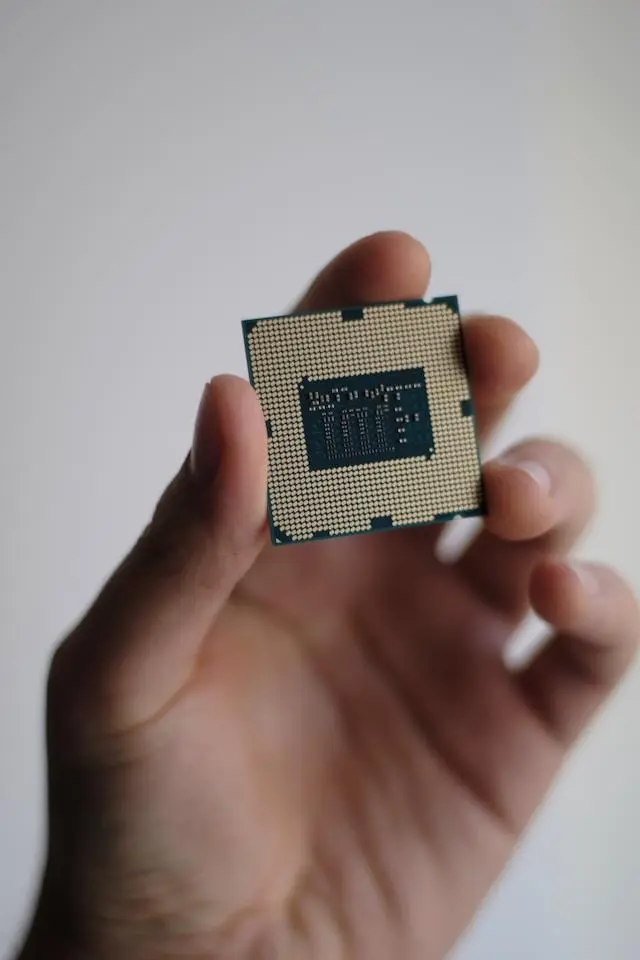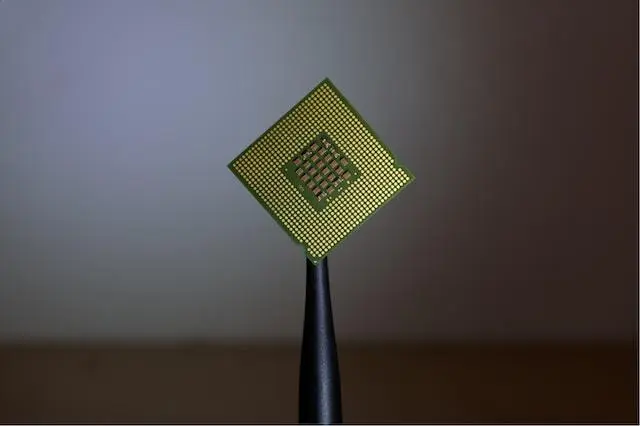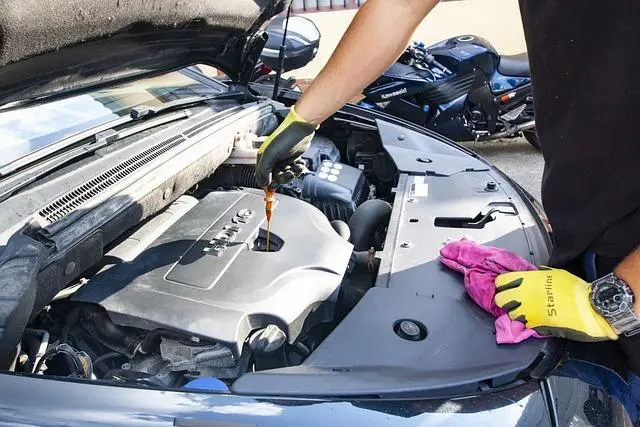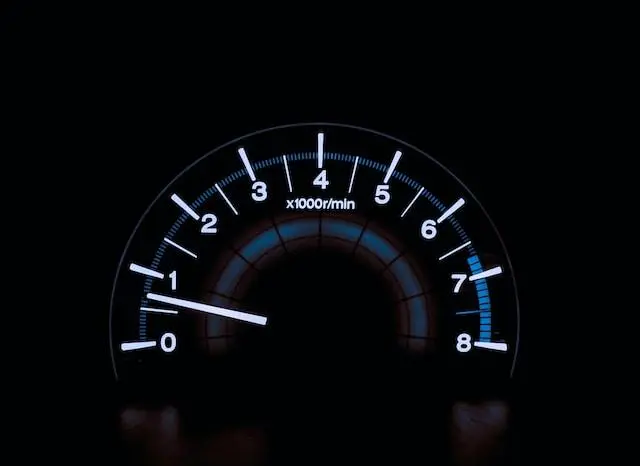ECU Explained: How This Small Device Controls Your Car's Engine
Published Date: 21st Jun 2023
 The Engine Control Unit (ECU), also known as the powertrain control module (PCM), plays a vital role in modern cars by overseeing and managing various aspects of the engine's operation. This electronic device, typically positioned under the dashboard, acts as the engine's " brain", utilising a combination of sensors, actuators, and pre-programmed software to ensure optimal performance and efficiency.
The Engine Control Unit (ECU), also known as the powertrain control module (PCM), plays a vital role in modern cars by overseeing and managing various aspects of the engine's operation. This electronic device, typically positioned under the dashboard, acts as the engine's " brain", utilising a combination of sensors, actuators, and pre-programmed software to ensure optimal performance and efficiency.
Let's delve deeper into the functions and significance of the ECU:
Ignition Timing Control:
The ECU precisely regulates the timing of the spark plugs, ensuring that the air-fuel mixture ignites at the most opportune moment. The ECU optimises the ignition timing by monitoring multiple factors such as engine speed, load, and temperature to enhance power output and fuel economy.
Fuel Injection Management:
Efficient fuel delivery is crucial for engine performance, and the ECU plays a pivotal role in this aspect. It precisely controls the fuel injectors to deliver the correct amount of fuel into the engine cylinders based on real-time inputs from sensors measuring parameters like air density, throttle position, and engine temperature. This fine-tuned control ensures efficient combustion and maximises power while minimising emissions.
Airflow Monitoring and Adjustment:
The ECU continuously monitors the airflow entering the engine through sensors like the mass airflow sensor (MAF) or manifold absolute pressure sensor (MAP). By accurately assessing the air intake, the ECU adjusts the fuel injection rates to maintain the ideal air-fuel mixture for optimum combustion and performance.
Emissions Control:
 Meeting environmental regulations is crucial, and the ECU plays a vital role in managing emissions control systems. It monitors and controls components such as the catalytic converter, oxygen sensor, and exhaust gas recirculation (EGR) system to ensure compliance with emission standards. The ECU adjusts fuel injection and ignition timing parameters to optimise combustion and reduce harmful emissions.
Meeting environmental regulations is crucial, and the ECU plays a vital role in managing emissions control systems. It monitors and controls components such as the catalytic converter, oxygen sensor, and exhaust gas recirculation (EGR) system to ensure compliance with emission standards. The ECU adjusts fuel injection and ignition timing parameters to optimise combustion and reduce harmful emissions.
Idle Speed Regulation:
The ECU maintains the engine's idle speed, ensuring it remains stable and within the specified range. It achieves this by monitoring important factors like engine load, temperature, and electrical loads. By making precise adjustments to the throttle body or idle air control valve, the ECU ensures a smooth idle, preventing stalling or excessive engine speed.
Diagnostics and Fault Code Detection:
The ECU monitors the engine's performance through various sensors and can detect anomalies or malfunctions. When a problem is detected, the ECU generates fault codes, which can be retrieved using specialised diagnostic tools. These fault codes aid technicians in identifying specific issues for efficient troubleshooting and repair.
The engine control unit (ECU) is an indispensable component of a car's engine management system. It uses advanced algorithms and real-time monitoring to optimise ignition timing, fuel injection, airflow, emissions control, and idle speed while providing diagnostic capabilities. The ECU's critical functions ensure cohesive and effective engine performance and maintain compliance with industry standards.
New Cars for Sale Near Me
How Does an Engine Control Unit Work?
The (ECU) Engine Control Unit acts as the brain of a car's engine. It regulates and oversees all essential functions, keeping everything operating smoothly and efficiently. It does this by monitoring various sensors, such as the throttle position sensor, the mass airflow sensor, and the engine coolant temperature sensor. The ECU uses the information from these sensors to calculate the optimal amount of fuel and air to be injected into the engine and the optimal timing of the spark plugs.
 The ECU also controls several other engine functions, such as idle speed, emissions control systems, and diagnostic processes. The ECU is constantly monitoring the engine and making adjustments as needed to ensure that the engine runs smoothly and efficiently.
The ECU also controls several other engine functions, such as idle speed, emissions control systems, and diagnostic processes. The ECU is constantly monitoring the engine and making adjustments as needed to ensure that the engine runs smoothly and efficiently.
Here is a summary of how the ECU works:
- The ECU monitors a variety of sensors.
- The ECU calculates the optimal fuel and air to be injected into the engine.
- The timing of the spark plugs is ECU controlled.
- The ECU controls many other engine functions.
- The ECU is constantly monitoring the engine and making adjustments as needed.
- The ECU is a critical component of a car's engine management system.
By ensuring that the engine runs smoothly and efficiently, the ECU helps to improve fuel economy, reduce emissions, and extend the engine's life.
Different Types of Engine Control Units

There are different types of engine control units (ECUs). The most common type is the engine control module (ECM). The ECM controls the engine's ignition timing, fuel injection, and emissions control.
Another type of ECU is the powertrain control module (PCM). The PCM is a more advanced type of ECU that controls the engine and other components of the powertrain, such as the transmission and the brakes.
Some ECUs control specific systems on the car, such as the transmission control module (TCM), which controls the transmission, and the body control module (BCM), which controls the car's body electronics.
The type of ECU used in a car will depend on the make and model of the vehicle. Some cars may have a single ECU that controls all of the car's systems, while other cars may have multiple ECUs.
Which type of Engine Control Unit is better?
There is no single "better" type of ECU, as each one serves a specific purpose and contributes to overall vehicle performance, safety, and comfort. The effectiveness of an ECU depends on its design, capabilities, integration with other systems, and compatibility with the vehicle's intended use and features.
For example, an engine control module (ECM) controls the engine's ignition timing, fuel injection, and emissions control. A powertrain control module (PCM) is a more advanced type of ECU that controls the engine and other components of the powertrain, such as the transmission and the brakes. A transmission control module (TCM) controls the transmission, and a body control module (BCM) controls the car's body electronics.
New Cars for Sale Near Me
Manufacturers allocate substantial resources to researching and developing each type of ECU to optimise specific functions. It is, therefore, critical to assess each ECU's performance, reliability, and compatibility with the vehicle's requirements and desired outcomes. The superior ECU is ultimately the one that best meets the specific needs and objectives of the vehicle's intended application.
What are the usual issues with Engine Control Units?
 Power surges and spikes can damage the ECU's internal circuitry, leading to erratic behaviour or complete failure. For example, if your car is jump-started with the wrong polarity, it can send a surge of electricity through the ECU that can damage it.
Power surges and spikes can damage the ECU's internal circuitry, leading to erratic behaviour or complete failure. For example, if your car is jump-started with the wrong polarity, it can send a surge of electricity through the ECU that can damage it.- Loose or corroded connections can cause intermittent problems, such as the engine stalling or the check engine light coming on. If the ECU connectors are not properly connected, it can lead to communication errors and other problems.
- Software corruption can happen if the ECU is exposed to a virus or other malware or if the software is updated incorrectly. If the ECU software is corrupted, it can cause problems, from the check engine light coming on to the engine not starting.
- Physical damage can happen if the ECU is exposed to water, heat, or impact. For example, if your car is in a flood, the water can damage the ECU.
- Age-related wear and tear The ECU is a complex electronic device, and like any other electronic device, it will eventually wear out. As the ECU ages, its internal components can degrade, leading to problems.
If you notice any of these problems with your car ECU, it is important to have it checked by a qualified technician as soon as possible. Early diagnosis and repair can help to prevent more serious issues and keep your vehicle running smoothly.
Here are some additional tips for preventing car ECU problems:
 Inspect the ECU connectors regularly: Look for any signs of looseness, corrosion, or damage.
Inspect the ECU connectors regularly: Look for any signs of looseness, corrosion, or damage.- Keep the ECU clean: Avoid exposing the ECU to dirt, dust, or moisture.
- Update the ECU software regularly: This will help ensure that the ECU runs the latest software and is compatible with your vehicle.
- Do not jump-start your car with the wrong polarity. This can send a surge of electricity through the ECU that can damage it.
- Avoid exposing the ECU to water, heat, or impact. These can damage the ECU's internal components.
- Install a surge protector: This will help to protect the ECU from power surges and spikes.
By following these tips, you can help to keep your car ECU in good condition and prevent problems.
Here are some key Article takeaways:
- ECU stands for the electrical control unit.
- ECUs are used in cars to control various systems, including the engine, transmission, and brakes.
- ECUs are complex electronic devices that are susceptible to problems.
- Some common ECU problems include power surges, loose or corroded connections, software corruption, physical damage, and age-related wear and tear.
- A few things can be done to prevent ECU problems, such as installing a surge protector, inspecting the ECU connectors regularly, keeping the ECU clean, and updating the ECU software regularly.
Find Amazing New Car Deals Here
Discover your perfect car with the guidance of our team of expert sales professionals. From start to finish, we'll work with you to find the ideal vehicle to match your needs. Contact UK Car Discount today and explore our wide selection of premier vehicles.
Call us today at 0161 946 3500 to discuss how we can guide you with your next Next New Car.
READ THE LATEST NEW CAR JARGON ARTICLES HERE
